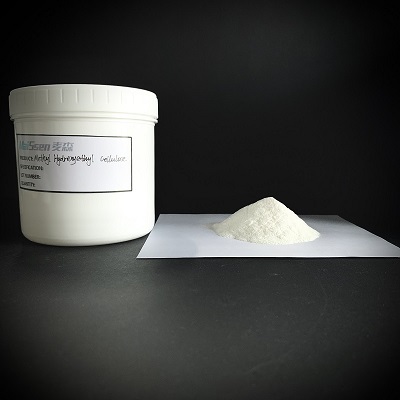Hydroxypropyl methyl cellulose ether (HPMC) is a highly versatile polymer that has become an integral part of numerous industries due to its unique properties and applications. HPMC is a non-toxic, non-ionic polymer that is derived from cellulose, and it is soluble in water, forming a viscous, transparent solution when mixed with water. Its molecular structure is composed of hydroxyl and methoxyl groups, making it highly compatible with a wide range of substances. HPMC has numerous properties and applications that make it a highly valuable and essential compound in modern industries.

The unique properties of HPMC make it highly versatile and useful in numerous applications. It is pH-sensitive and its solubility in water is affected by the temperature and pH of the solution. Its viscosity is dependent on its molecular weight and degree of substitution, making it highly customizable for specific applications. HPMC has excellent film-forming properties and adhesion, which make it highly useful as a binder in the manufacturing of tablets and capsules in the pharmaceutical industry.
HPMC has numerous applications in different industries due to its unique properties. In the pharmaceutical industry, HPMC is used as a binder, film-coating agent, and controlled-release agent for tablets and capsules. Its ability to form a transparent, viscous solution makes it an ideal choice for coatings that can protect the active ingredients from moisture and oxygen. In addition, HPMC's film-forming properties make it useful in the production of transdermal patches and films.
In the food industry, HPMC is used as a thickener, emulsifier, and stabilizer in various products such as dairy products, baked goods, and processed meats. Its viscosity and water-retention properties make it an excellent choice for use in sauces, dressings, and gravies. It is also used as a fat replacer in low-fat products such as yogurts and ice cream.
In the construction industry, HPMC is used as a water-retention agent, thickener, and binder in cement-based products such as mortar, tile adhesives, and grouts. Its ability to retain water ensures that the cement-based products remain workable for a more extended period, making it easier for contractors to work with them. Additionally, HPMC improves the adhesion of cement-based products to various surfaces, making them more durable and resistant to weathering.
In the cosmetics industry, HPMC is used as a thickener, binder, and emulsifier in various skincare and hair care products. Its excellent film-forming properties make it useful in the production of hair gels and styling products. It is also used as a suspending agent in sunscreens and other cosmetic products.
HPMC has numerous benefits that make it a highly attractive choice for various industrial applications. Firstly, it is non-toxic, non-ionic, and biodegradable, making it environmentally friendly. Secondly, it is highly compatible with a wide range of substances, including organic solvents, making it useful in numerous formulations. Thirdly, it has excellent film-forming properties, making it useful in coatings and adhesives. Lastly, it is water-soluble, making it easy to incorporate into aqueous formulations.
In conclusion, hydroxypropyl methyl cellulose ether (HPMC) is a highly versatile and valuable compound that has become an integral part of numerous modern industries. Its unique properties, including its excellent film-forming properties, make it highly useful in various applications. Its numerous benefits, including its environmental friendliness and compatibility with a wide range of substances, make it a highly attractive choice for different industrial applications.
Copyright:@2020-2021
Comments Please sign in or sign up to post.
0
0 of 500 characters used